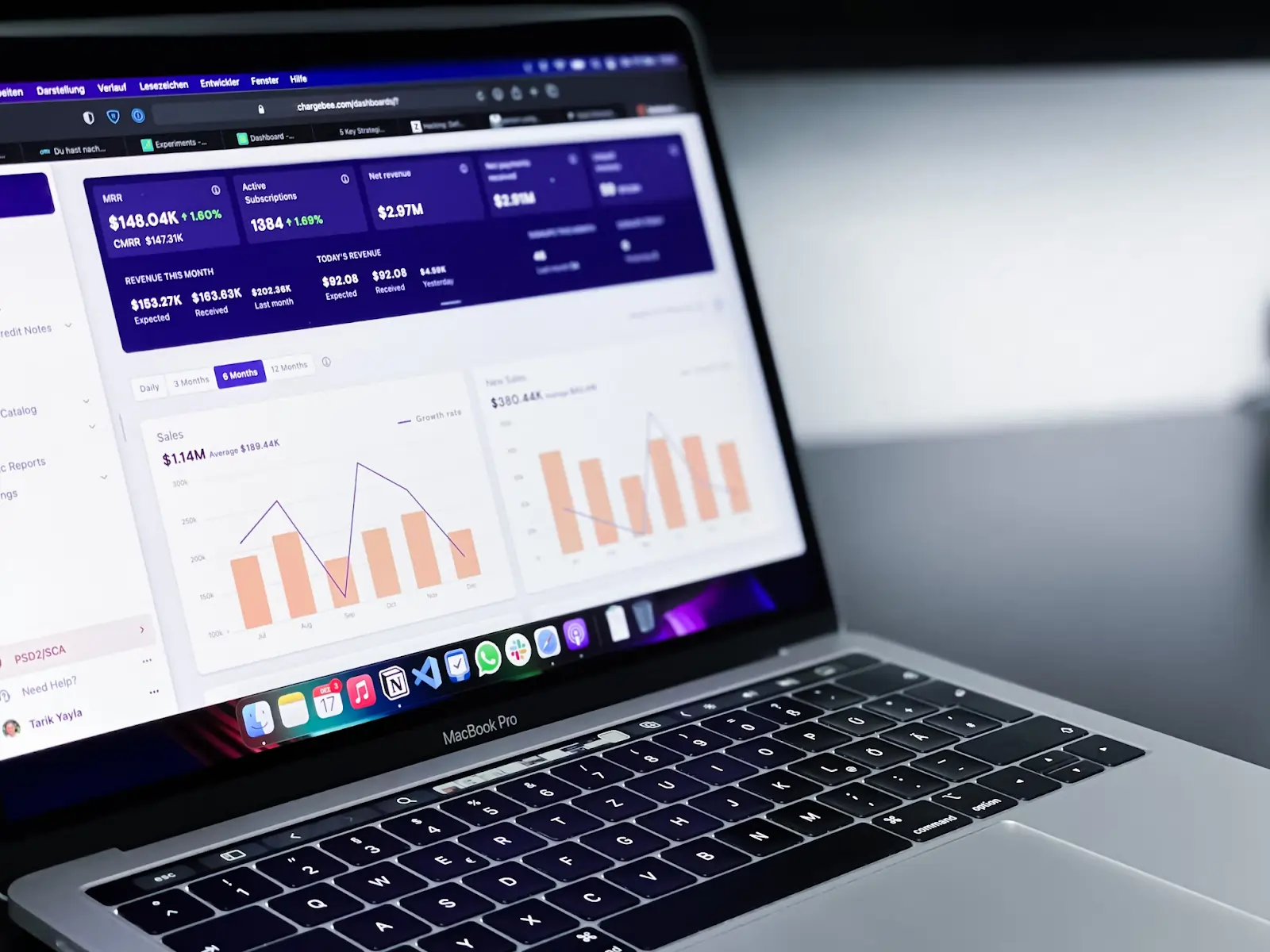Leveraging Data Analytics to Enhance Marketing Campaigns

Are you sick of making assumptions about your marketing campaigns?
Every business has more data than they know what to do with at the moment. Website analytics, social media insights, email performance stats, customer behavior patterns and so much more.
All of it is just sitting in different tools waiting to be discovered.
The problem?
Most companies aren't using their data right now. 87% of marketers claim data is their company's most under-utilized asset. Think about how many opportunities are sitting on the table right now.
The good news? Data analytics can help you turn your marketing campaigns from a guessing game into a laser-focused, profitable operation. Partnering with professional digital marketing solutions providers is a great way to dig into the insights you didn't even know existed. Digital marketing agency services that prioritize data-driven decision-making are revolutionizing how businesses connect with their customers and the results are clear.
In this article, you’ll discover:
- What is Data Analytics in Marketing?
- Why Data Analytics Changes Everything
- How to Actually Use Your Data
- Mistakes To Avoid When Using Data Analytics
What Is Data Analytics in Marketing?
Data analytics in marketing is a process of collecting, measuring, and analyzing all the data from your campaigns to make informed decisions.
Easy right? Instead of launching a campaign into the void and hoping it converts… you measure every action with real numbers that you use to make decisions.
This means tracking visitor behavior on your website, email open rates, social media engagement, conversion paths, customer lifetime value, campaign ROI and more. When data analytics is implemented correctly it means you stop throwing money away on ineffective tactics.
Why Data Analytics Changes Everything
Data-driven marketing is the difference between the businesses that win and the businesses that stagnate.
Better Decisions
Marketing decisions used to be based on intuition. You remember the days before analytics tools when you just had to launch a campaign and hope for the best, right?
The problem was there was no way to know for sure if something was working. You made the best guess possible and spent money on things like Facebook ads just because "everyone else is doing it".
With data analytics you can see clearly which channels provide the best return. This means you can make data-backed decisions on everything from which campaigns generate the most revenue to what content your audience engages with to when people are most likely to convert to where you should be allocating your budget. Clarity is invaluable.
Improved Customer Understanding
If there's one thing data analytics gives you, it's insight into your customers' minds.
You can track the entire customer journey starting with the very first point of contact all the way through to purchase. This means you can see what factors motivate people to choose you as a brand… as well as what things cause them to drop off and never convert.
Here are just a few examples of what data analytics can uncover for you:
- Which pain points do your audience care most about?
- What are their objections to buying?
- How do they like to communicate with brands?
- What are the common triggers that cause them to buy?
You used to have to pay for market research to discover this kind of thing. Now, this data is already being collected as part of your marketing analytics.
Better ROI on Every Campaign
Now that we've covered two of the most important benefits of using data analytics, it's time to get to the best part.
Data analytics dramatically increases the ROI of every single marketing campaign you run. When 72% of marketing budgets are going towards digital marketing, it's essential that you make every dollar count.
Data analytics allows you to trim the fat by cutting spending on campaigns that aren't generating conversions, double down on the highest performing channels, A/B test, refine and optimize your messaging and personalize at scale. The result is increased revenue with the same marketing budget.
How To Use Data Analytics Effectively
Believe it or not, collecting data is the easy part. Knowing how to actually use your data is where most businesses flounder.
Have Clear Goals
The first step towards effective data analytics is having clear goals. Knowing what you want to accomplish guides everything you do with your data.
Are you trying to increase website traffic? Conversion rates? Customer retention? Knowing your goals upfront tells you which metrics are important and which metrics are "nice to have".
Focus on Actionable Metrics
Not all metrics are created equal. Some metrics look good on a dashboard, but they don't actually help you make decisions. Actionable metrics are those that have a direct impact on your business.
Some examples are cost per acquisition, customer lifetime value, conversion rate by channel, revenue by campaign. When you track actionable metrics, the numbers tell you what's working and what needs to change.
Segment Your Audience
Most businesses make a huge mistake by treating all customers the same.
Data analytics allows you to segment your audience based on behavior, demographics, purchase history, and more. This allows you to create personalized campaigns and messaging for each specific segment. This level of personalization at scale dramatically increases engagement and conversion rates.
Test Everything
Data analytics also makes testing a breeze. You can test email subject lines, landing page designs, ad copy and images, call-to-action buttons and pricing.
The most important thing about testing is to test one variable at a time. Let the data guide your decisions by choosing the best performing version. Rely on results instead of opinions.
Common Data Analytics Mistakes
Businesses have a lot of potential here. But there are still some common mistakes that you should avoid…
Collecting Data Without a Plan
One of the biggest data analytics mistakes businesses make is collecting data without a plan.
Collecting data for the sake of collecting data is just a waste of time. If you don't have a clear idea of how you're going to use your data then why are you tracking it?
Make a plan first, then collect data that's relevant to the information you're trying to find.
Ignoring Data Quality
Bad data leads to bad decisions. If your data tracking isn't set up right, it's going to give you misleading results. You'll end up spending time and money optimizing campaigns that aren't relevant to your business or tracking the wrong metrics.
Make sure you're using proper tracking codes on all of your campaigns, cleaning up your data regularly, verifying your analytics setup, and removing duplicate entries.
Quality over quantity.
Analysis Paralysis
We've all been there. You have a mountain of data in front of you and you don't know where to begin.
Don't spend so much time analyzing that you never actually make changes. This is the problem with "analysis paralysis".
Set aside specific times for data analysis and specific times for taking action on your data. Perfect information is less important than having a decent amount of insight to make decisions.
Wrapping Up
Data analytics is no longer a luxury. It's an absolute necessity for marketing success. The businesses that are winning in their markets are not making decisions based on guesses or gut feelings.
They are using data to inform every decision they make. If you can master data analytics, you will understand your customers better than your competitors, spend your marketing budget more effectively, create campaigns that truly resonate with your audience, and be able to clearly demonstrate the ROI of your marketing efforts.
The data is all there. You just need to know how to use it. Start small, focus on actionable insights, and let the numbers lead your strategy. Your competitors are all using data to get ahead right now.
Share
Table Of Contents
- What Is Data Analytics in Marketing?
- Why Data Analytics Changes Everything
- How To Use Data Analytics Effectively
- Common Data Analytics Mistakes
- Wrapping Up
